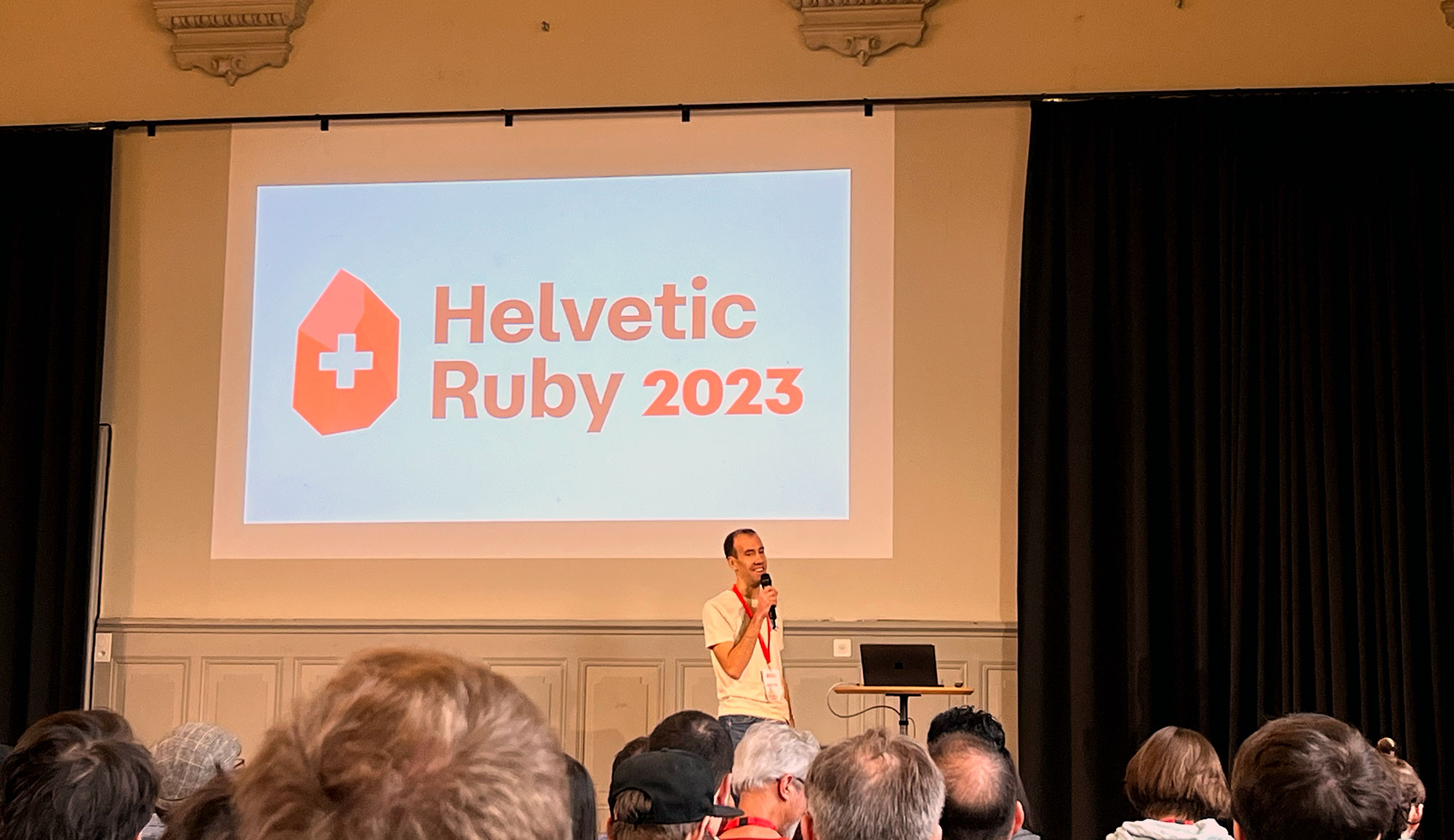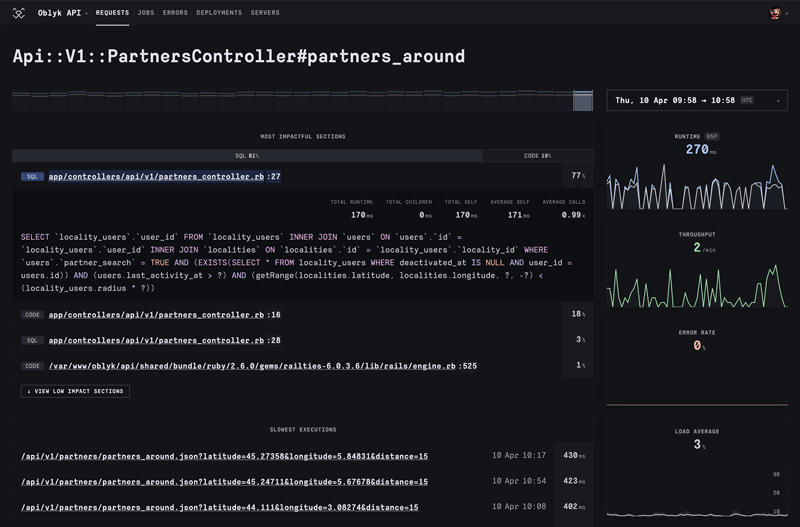Helvetic Ruby
On November 24th, I had the pleasure of attending Helvetic Ruby, the first-ever Ruby conference in Switzerland. Here is my review.

Helvetic Ruby was an excellent conference, offering a fresh opportunity to connect with old friends and new faces, engage in discussions, and share insights. The best part? They’re planning to do it all over again next year.
The day started with Vladimir Dementyev‘s talk on Profiling Ruby tests with Swiss precision.
His main point was to not focus on the slowest tests, but on the things that could slow down a little bit all the tests.
The slowest test are often slow for a good reason.
Disabling logging was a great example to prove his point, saving about 6% in all tests with just one line of code.
TestProf piqued my interest, and I’m eager to give it a try.
His talk also gave me an idea.
RorVsWild already measures major events of Rails applications.
By creating a tests reporter, it could be possible to list the sections with the biggest impact, as we already do for requests.
Abiodun Olowode took the stage with A Sneak Peek into Ractors! I never had time to study the actor model, so it was a great occasion. That is a way of achieving concurrency by exchanging mutexes for default immutable data. However, it is not completely safe, and as with threads, you can still mess up.
Karen Jex shared valuable advice on maintaining PostgreSQL databases in her talk, How to Keep your Database Happy.
One point was about setting the best performance settings.
I personally like to use PGTune.
If you handle manually your PostgreSQL, I highly encourage you to do it.
If you use a managed database, I recommend to verify that your provider did it for you.
For the last talk of the morning, Postcards From An Early-Career Developer’s First Months, Harriet Oughton provided insightful advices for junior developers and seasoned professionals alike, to help them get better.
After lunch, Ju Liu treated us with a live coding session, The Functional Alternative. Watching him code and refactor a better solution was very satisfying.
Then, Isabel Steiner talked about How to bootstrap your software startup. The scanned and hand-drawn models are what I liked best. I do the same thing. It shows that you do not need much to get going. It reminds me of the following joke, which is probably wrong but wonderful.
NASA spent millions to develop a pen that would write in space, whereas the Soviet cosmonauts used a pencil.
The most basic tool is all you need to get started.
Cristian Planas and Anatoly Mikhaylov took us on a journey through A Rails performance guidebook: from 0 to 1B requests/day. It is always good to hear scaling issues from other projects. Some concerns are common to all applications, while others are specific to some projects. That is the case with Zendesk, which stores an immense volume of text data with all its support tickets. Clearly, their database volume problem is more significant than the volume of requests.
Finally, for the last presentation, we were lucky enough to have Raia give us a live demo of Anatomy of a Sonic Pi Song. Every Sonic Pi demo makes me want to try and compose music with it. It was a great choice to end the conference on a good note.
In summary, Helvetic Ruby was a fantastic day, full of enriching talks, live coding sessions, and meaningful connections. The diverse range of topics, from test profiling to scaling Rails applications and creating music with Sonic Pi, showcased the vibrancy of the Ruby community. I’m eagerly looking forward to the next edition.
